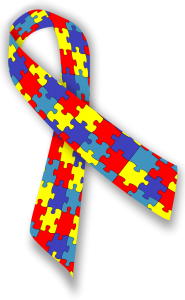Nearly a quarter century ago, the Autism Society launched a nationwide effort to promote autism awareness, inclusion, and self-determination for all, and to assure that each person with autism spectrum disorder (ASD) is provided the opportunity to achieve the highest-possible quality of life.
National Autism Awareness Month (April) provides an excellent opportunity to promote autism awareness and acceptance, as well as to draw attention to the tens of thousands facing an autism diagnosis each year.
This year I want to challenge friends, families, neighbors, and businesses to become partners in a movement toward acceptance and appreciation … in all aspects.
Personally, my passion is music. I’ve combined my love for music with the desire to help others into a profession where I can use music every day. I am a musician, a singer, a caregiver, and a music therapist. In my therapy role, I provide a unique variety of music experiences for all those I work with. It is especially good therapy for people with autism. Music is a universal language and holds widespread appeal. It provides a bridge in a variety of settings between people with disability and those without. No matter how young or old you are, if you have a disability or not, we all understand music and respond to its rhythm with some kind of movement.
So let’s all embrace a new perspective. Over the years we have worked in communities (both large and small) to ensure that our actions, through our services and programming, supported all individuals living with autism. But what is actually available to families who care for someone with autism? Where can you go with your loved one and feel that they are safe, not judged, and enjoy the whole experience?
In 2011, the Theatre Development Fund (TDF) launched the Autism Theatre Initiative (ATI) with Disney’s landmark musical The Lion King, performing the first-ever autism-friendly performance of a Broadway show. Following the success of the first performance, the program, now known as TDF’s Autism Friendly Performances, continues to make theatres accessible to children and adults on the autism spectrum as well as their families.
So you ask: What makes a performance autism-friendly? Each show is performed in a supportive environment for families and friends with children or adults who are diagnosed with an autism spectrum disorder or other sensitivity issues. Slight adjustments to the production are made, including reduction of any jarring sounds or strobe and spot lights that shine into the audience. House lights are faintly dimmed but remain on. Noise-cancelling headphones are available and quiet/activity areas are staffed with autism specialists, available in the lobby areas for those who need to leave their seats during the performance. You will also find that performances have smaller audience sizes, audience members are free to talk or move around during the show, and you have an opportunity to see the performers in costume before the show starts.
These autism-friendly or sensory-friendly theatres can be found all around the country. The closest for us, here in the Shenandoah Valley, is at Ford’s Theatre. Located in Washington, DC, Ford’s Theatre is having a sensory-friendly performance on Saturday, May 5, 2018 at 2 pm for The Wiz. The estimated running time for the show is approximately 2.5 hours with an intermission.
Ford’s Theatre is just one example of a business or event trying something new and accessible to everyone. For more information on the TDF and Autism Theatre Initiative (ATI), visit their website www.tdf.org
Music is my love and passion, something I want to share with others. However, if this is not your cup of tea, there are several other sensory/autism friendly places. To find these, all you need to do is an internet search for sensory/autism friendly places or events. I was able to find several neat, exciting, and convenient places. These range from amusement parks to movie theaters, professional sporting events, entertainment/food places, and even Sensory/Autism Friendly vacation spots … just to name a few.
So whatever you do or wherever you go, I hope you find that people and organizations are taking one extra step to helping families and friends of those with autism feel more accepted and valued in their communities.
Ashley Shoemaker
Community Outreach/Intake Specialist
Harrisonburg-Rockingham Community Services Board

